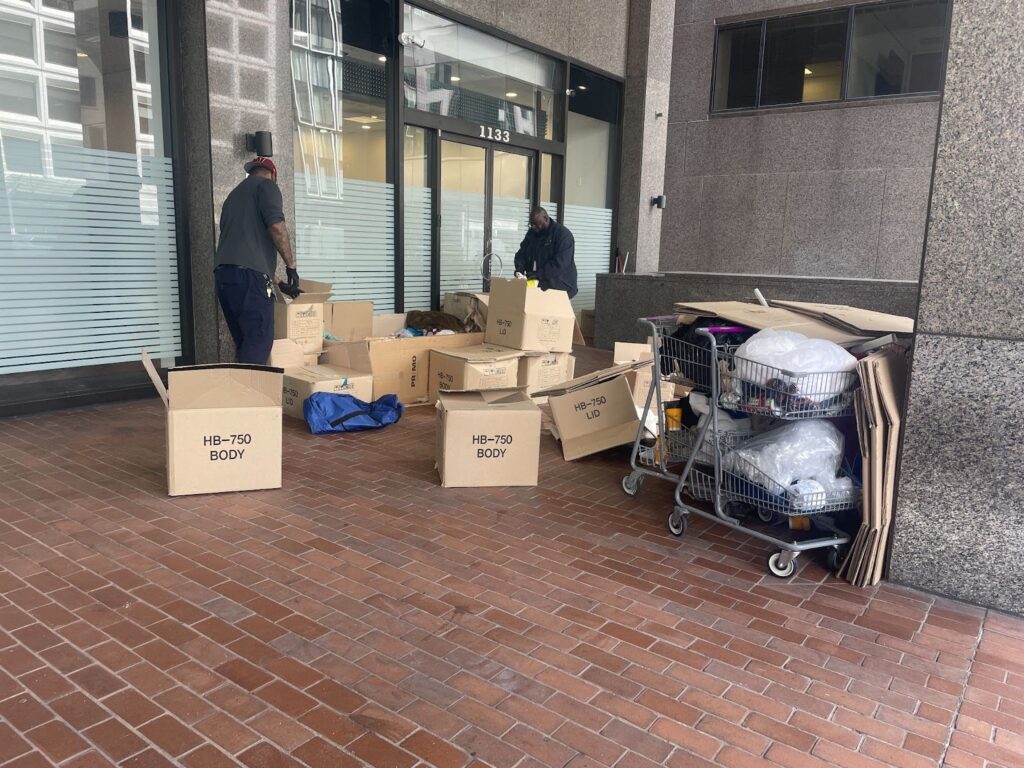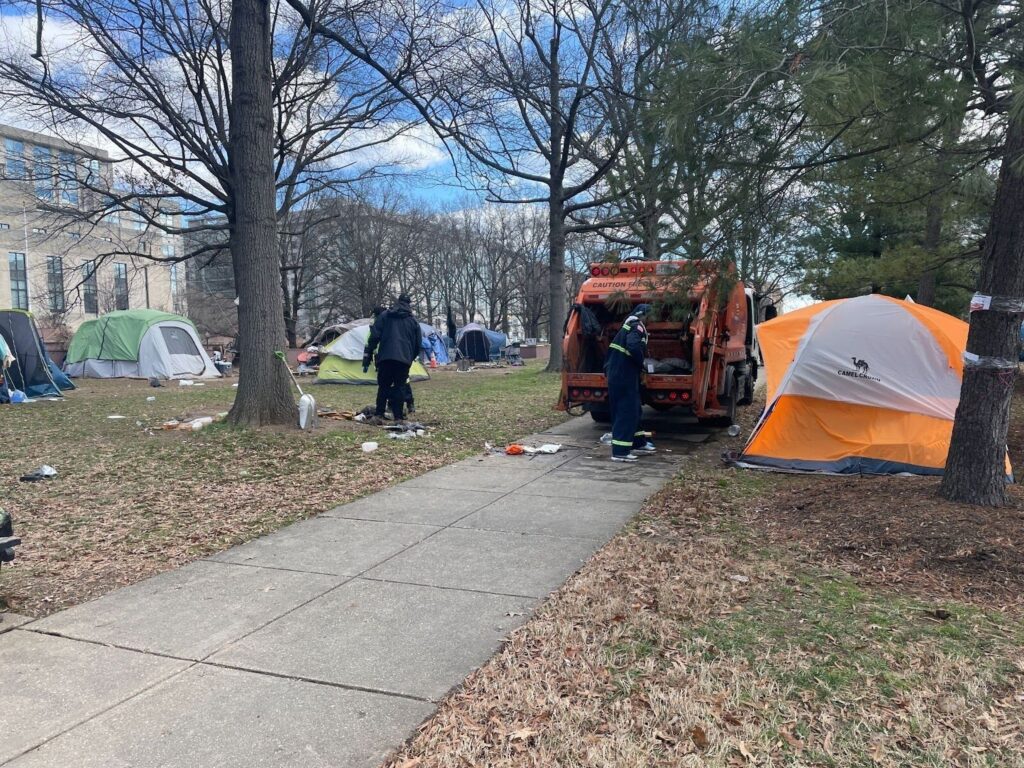In an effort to curb the criminalization of homelessness in D.C., Street Sense hosted a panel discussion on Thursday, February 11 at the Church of the Epiphany. Panelists illustrated the ways homelessness has been criminalized locally and offered ways in which the audience of 85 community members could hold their government accountable.
[Disclosure: Street Sense Media rents office space from the Church of the Epiphany]
“When we say criminalization, we’re talking about laws and ordinances enacted by cities and jurisdictions that prevent daily activities done in public,” said panelist Jennie Simpson, a policy analyst at the Substance Abuse and Mental Health Services Administration.
People experiencing homelessness are impacted by laws that restrict many things we take for granted, Simpson said. This list includes everyday activities such as naps, bathing, and sleeping.
Ann Marie Staudenmaier, a staff attorney at the Washington Legal Clinic for the Homeless, noted that although panhandling is constitutionally protected, D.C. outlaws “aggressive” panhandling — meaning this activity is not permitted at any metro stops or within 10 feet of an ATM machine.
Police in D.C. will often use these panhandling policies to threaten peaceful panhandlers, according to Staudenmier, making life more difficult for the homeless than it already is.
Tyrone Roper, an expert on the behavioral health system, was able to provide additional context through his experiences as the associate director of criminal justice for Behavioral Health System Baltimore.
Roper noted that in order to help the homeless, more guidance is needed within shelters and court systems. In Baltimore, Roper said, people without homes are connected with services through courts and shelters to get them treatment or assistance if it is needed.
The panel also included Street Sense vendor and author Gerald Anderson, who recounted his experiences battling homelessness and times where he saw innocent people being mistreated by city police.
“A lot of people don’t have anywhere to stay,” Anderson said, recounting a story of a homeless woman who was disrespected by police and had her belongings nearly thrown away. “There are two sides to every story.”
WAMU’s senior reporter Armando Trull interviewed and moderated the group.
When asked by audience members what the average person can do to end the criminalization of homelessness in D.C., panelists implored them to familiarize themselves with local legislation and get involved in local politics.
“Go to city council meetings, have your voice heard,” Simpson said. “That’s one of the most powerful ways to change things around you at a local level.”
“It’s always been on my heart to reach out to the homeless population and see what I can do to help,” said audience member Pia Clark, who was told about the panel by a friend. “But getting involved with our city council and reaching out to local officials — that’s something that has never crossed my mind.”
Clark’s views were echoed by others in attendance.
“I’m definitely going to get a hold of the mayor’s office and the deputy mayor’s office and send them a note,” audience member Roger Munter said.







